During a characteristically fraught scene in the third season of The White Lotus, three women on a luxury catch-up vacation together are deep in conversation at dinner. The discussion has turned to religion. One of the group, Kate, mentions to her friends (Jaclyn, a talk show host from Los Angeles, and Laurie, a lawyer living in New York) that she’s been going to church every Sunday ever since she and her husband moved to Austin, Texas, adding that she finds it ‘very moving’. Somewhat surprised and quite intrigued, Jaclyn asks if this particular church is ‘a real Texan church, like with Bible thumpers?’1 This precipitates an ostensibly cordial, yet subtly simmering exchange in which Jaclyn and Laurie, oscillating between bemusement and concern, realise that their friend might be a lot more conservative than they had assumed. It’s not long before Laurie feels compelled to confront Kate with another question: ‘You didn’t vote for Trump, though, did you?’
In some ways, Kate’s answer doesn’t matter. The question, triggered by an expectation that Christian religiosity might naturally lead its adherents towards right-wing populism, is revealing in itself. This moment, and the atmosphere of social dissonance it precipitates, captures a sense of the prevailing cultural slippage between religion and politics in the United States. It gestures towards the idea that the growing politicisation of religion is having a divisive impact on American society. It also indicates some of the historical and cultural blind spots that are inhibiting secular liberals and religious conservatives from finding common ground for the good of the country.
So, why should a discussion about going to church so easily veer towards becoming an argument over politics? Is this good for religion? Is it healthy in a liberal democracy? What should believers and non-believers do about it? These conundrums are the focus of Jonathan Rauch’s new book, Cross Purposes: Christianity’s Broken Bargain With Democracy, which offers an empathetic yet incisive assessment of the situation as well as a promising way forward.
The thesis of this thoughtful and energising intervention is as follows: A significant proportion of Christian believers in the United States are increasingly struggling to engage productively with liberal democracy and uphold the tenets of the Constitution. A particularly vociferous brand of evangelical conservatism is abandoning the theological precepts of Christianity and the spiritual teachings of Jesus in favour of rightward hyper-partisanship, which is manifesting as a strikingly secularised form of lobbying on the part of congregants eager to involve their churches and pastors in the latest political and cultural furores rather than pursue the beliefs and practices of their faith on its own terms. This movement derives its energy not from Christ, but from fear, apocalyptic thinking, and polarisation. The shift is not, it turns out, the result of liberalism’s emphasis on the individual or secularism’s hounding of religious expression out of public and civic life, as post-liberals and Christian nationalists would have us believe. Rather, it is a consequence of evangelical decision-making and strategies of political engagement over the last half century or so. Given the historical and contemporary alignment, and even reciprocity, between American liberal democracy and American Christianity, embedded within the origins and structures of US institutions and documents, these developments might be causing the moral and social dimensions of liberalism itself to deteriorate. Such circumstances should worry all citizens of the republic regardless of religious affiliation, from the most ardent secularists and critics of Christianity to its most fervent adherents and public advocates. In the context of a deeper symbiosis between secularism and spirituality, the solution for Christianity involves the renewal of spiritual formation through a return to Christly principles, the reinvigoration of ‘civic theology’, and the pursuit of compromise through negotiation, all of which is currently best exemplified, as it turns out, by the Church of Jesus Christ of Latter-day Saints. At the same time, rather than aggressively asserting secular supremacy at all costs, proponents of secular liberalism might benefit from reaffirming religious freedom, advocating for the vitality of Christian institutions, and even engaging somewhat more inclusively with Christian perspectives on culture, morality, and philosophy where these ideas are consonant with the broad vision of liberty, justice, pluralism, and democracy that the Constitution sets out.
The book offers an effective defence and reaffirmation of liberalism against its post-liberal and Christian nationalist critics. As Rauch persuasively shows, secular liberal democracy might be flawed, but it remains the best framework within which to practice one’s faith safely and productively without interference from the state or oppression at the hands of other groups. To the extent that Christianity is suffering from spiritual deterioration and a crisis of authority, the call is coming from inside the church.
Nonetheless, while making a persuasive case for focusing on the conservative dimensions of evangelicalism in the United States, Rauch also considers the part that a parallel political shift leftward in the mainstream Church might have played in alienating, or simply wearying, its congregants. These are important aspects of the topic that would repay further consideration. While it could well be that ‘secular influence has helped Christianity become more tolerant, more reality-based, and ultimately more Christlike’ more might nevertheless be said about the extent to which the tone and pace of this political transition, along with the social and legislative interventions of activist secular liberals, has helped to push people towards more reactionary kinds of evangelicalism.
The emotional experience of religion plays a significant role in Rauch’s argument in ways that resonate with recent historical studies of Protestantism. A pivotal part of the book’s thesis is the idea of ‘Sharp Christianity’ or the ‘Church of Fear’. As mainstream American Protestantism has gradually shifted towards centre-left progressive politics, Rauch suggests, a strident branch of white evangelical Protestantism has become not only increasingly secularised but also more willing to appeal to fear, more likely to sow division, and more overtly partisan, in an effort to align itself with conservative politics.
This shift has crescendoed with the overwhelming endorsement of Donald Trump among evangelicals, a choice that probably reflects the culmination of protracted cultural trends within evangelicalism even as it has signalled a troubling rupture with the movement’s self-proclaimed traditions, values, and priorities. The possibility that Christianity has fomented the emotional conditions of its own retrenchment, whether intentionally or otherwise, has a lively history.
Identifying ‘anger’ and ‘anxiety’ as integral emotional currents underlying ‘unbelief’, the historian Alec Ryrie has recently suggested that ardent Christian believers themselves gradually contributed to the destabilisation of religious truth following the Protestant Reformation as they struggled to establish certainty about matters of doctrine and increasingly sought alternative moral frameworks within which to make sense of their lives. Consequently, Ryrie argues, ‘the emotional history of Western atheism…is not a story of an external assault on Christianity. It is a story of Christians and post-Christians attacking from within’. In a sense, Rauch’s study situates Protestants today within a modern reiteration of this same emotional crisis, one that is largely of believers’ own making rather than the result of antagonistic atheists and sinister secularists working to undermine religious institutions and identities from the outside.
In doing so, Cross Purposes examines contemporary manifestations of a more fundamental problem that has shaped the religious culture of Protestantism since its emergence in the sixteenth century. The book marks an intervention in a long historical argument about the definition and character of ‘authentic’ Christianity, which surely lies in the eye of the beholder to a significant degree. Appealing to the better angels of the Christian religion, Rauch implores believers to re-engage with the teachings of Jesus and laments that so many seem to have strayed from the message of the New Testament. He identifies ‘Sharp Christianity’ as an errant and damaging strain of conservative evangelicalism that is ‘divisive, fearful, partisan, and un-Christlike’.
This points towards a conundrum, however, given that, for much of its history, a substantial part of Christianity has been divisive, fearful, and partisan precisely because Christians have been unable to agree on how best to be Christlike. The book calls on moderate Christians to reclaim religious purity and spiritual authenticity from increasingly extreme evangelical conservatives, yet it is worth remembering that efforts to restore Christianity to its pristine roots have historically catalysed some of the very divisions and hostilities within religion that the author hopes to temper in the name of secular liberalism. What is surely a necessary and admirable a call for moderation and reconciliation between religion and secularism along the lines of the Enlightenment, the American Revolution, and the writings of James Madison, thus runs the risk of unconsciously wading into an intensely religious disagreement over the proper interpretation of scripture, doctrine, preaching, and praxis.
In this way, the legacies of inter-confessional and inter-denominational conflict continue to surreptitiously shape secular and religious perspectives on contemporary politics. For instance, Rauch’s claim that ‘The Church of Fear is more pagan than Christian’ unintentionally replicates a profoundly theological accusation that would have been right at home in the aggressive polemics and fiery sermons that Protestants and Catholics in England and the Americas exchanged as they argued over the boundaries of their spiritual communities throughout the early modern period.
The book nonetheless provides a compelling prospectus for a creative and hopeful approach to revitalising the seemingly dichotomous relationship between secular liberalism and Christianity, arguing that both are built into the constitutional framework and political culture of the United States. This is a logical and productive approach given the historical cross-pollination between these foundational and enduring phenomena. At the same time, this model might inadvertently perpetuate the intractability it seeks to smooth over. Treating secular liberalism and Christianity as interdependent, yet largely monolithic entities could end up downplaying the chasmic differences between them, obscuring the diversity of perspectives and identities within each of them, and eclipsing a wider constellation of ideas and arguments that exist beyond them.
The book draws upon a wide range of interviews, statistical studies, and scholarly literature to evoke the granularity of Christian experiences and perspectives. It also effectively draws upon the example of the Church of Jesus Christ of Latter-day Saints in order to demonstrate the range of approaches that different Christian groups are taking in order to more flexibly navigate the challenges of a rapidly changing and often obstreperous religious politics.
Nevertheless, if secular liberalism in the United States is the essential framework within which a multitude of political, cultural, social, and religious ideas and dispositions are able to flourish, then Christian denominations represent just a few religious identities among many that contribute to the whole, even if Christian ideas did play a particularly important part in the founding of the republic (notwithstanding the highly influential role of freethought in American history).
While the book alludes to non-Christian religions, it would be fascinating to read a sequel to this volume that explores the same broad problem from the vantage point of non-Christian citizens, however small their numbers might be. What does liberalism mean to Jewish, Muslim, Hindu, or Buddhist believers? How do Native Americans situate the secular state and its advocates in an historical, cosmological, and religious framework? Are there comparable crises and struggles taking place in these communities that might impinge on liberal democracy or prove instructive in strengthening it?
These considerations reflect the galvanising effects of this thought-provoking work, which avoids recapitulating familiar talking points and instead invites readers to think in new ways and ask new questions. Representing a provocative reorientation in an increasingly hazardous political and religious landscape, Cross Purposes sets out an approach that American believers and non-believers alike, regardless of political persuasion, should take seriously if they are to confront and overcome the differences that are threatening to impede the original and enduring collective purpose of the United States.
- Incidentally, Austin is often seen as a relatively liberal-leaning enclave within the more broadly conservative state of Texas. ↩︎
Related reading
US feeling cross: a review of ‘Cross Purposes’ by Jonathan Rauch, by Nicholas E. Meyer
The Fourth of July and the Battle for America’s Soul, by Daniel James Sharp
The radical atheism of the American revolutions: interview with Matthew Stewart, by Daniel James Sharp
Donald Trump is an existential threat to American democracy, by Jonathan Church
Donald Trump, political violence, and the future of America, by Daniel James Sharp
White Christian Nationalism is rising in America. Separation of church and state is the antidote. By Rachel Laser
Robert G. Ingersoll: The Great Forgotten Orator of Reason and Liberty, by Tom Malone
‘Project 2025 is about accelerating the demise of a functioning democracy’: interview with US Representative Jared Huffman, by Daniel James Sharp
Reproductive freedom is religious freedom, by Andrew Seidel and Rachel Laser
Can the ‘New Theists’ save the West? by Matt Johnson
Against the ‘New Theism’, by Daniel James Sharp
What has Christianity to do with Western values? by Nick Cohen



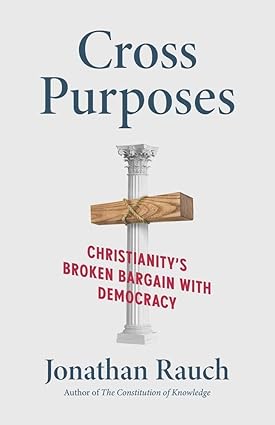
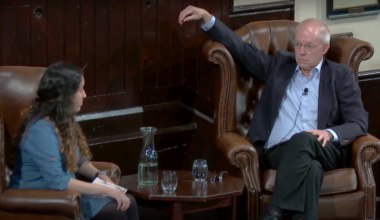
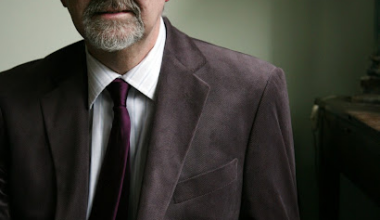
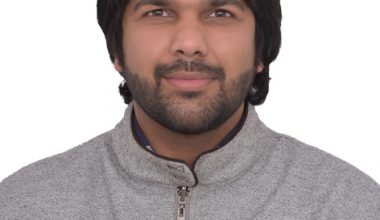

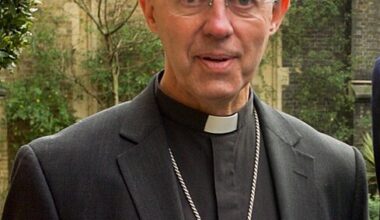
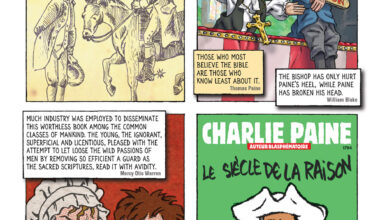
2 comments
Terima kasih atas artikel yang mendalam dan reflektif ini. Sebuah ulasan yang tidak hanya menyegarkan wacana seputar hubungan antara agama dan demokrasi, tetapi juga menantang kita untuk berpikir ulang tentang akar, tujuan, dan arah dari kepercayaan dan kewarganegaraan. Pendekatan Cross Purposes yang seimbang dan bernuansa patut diapresiasi—sebuah ajakan penting bagi pemeluk iman dan kaum sekuler untuk kembali berdialog secara jujur demi masa depan bersama.
Regard Unissula
Thank you for this rich and intellectually vibrant piece. The analysis is both provocative and deeply reflective, capturing the intricate entanglement of faith and politics in today’s America with nuance and historical sensitivity. It invites readers to reconsider assumptions, reframe divisions, and pursue a more constructive dialogue between secular and religious visions. A compelling and necessary contribution to the ongoing conversation—much appreciated.
Regard Unissula
Your email address will not be published. Comments are subject to our Community Guidelines. Required fields are marked *
Donate